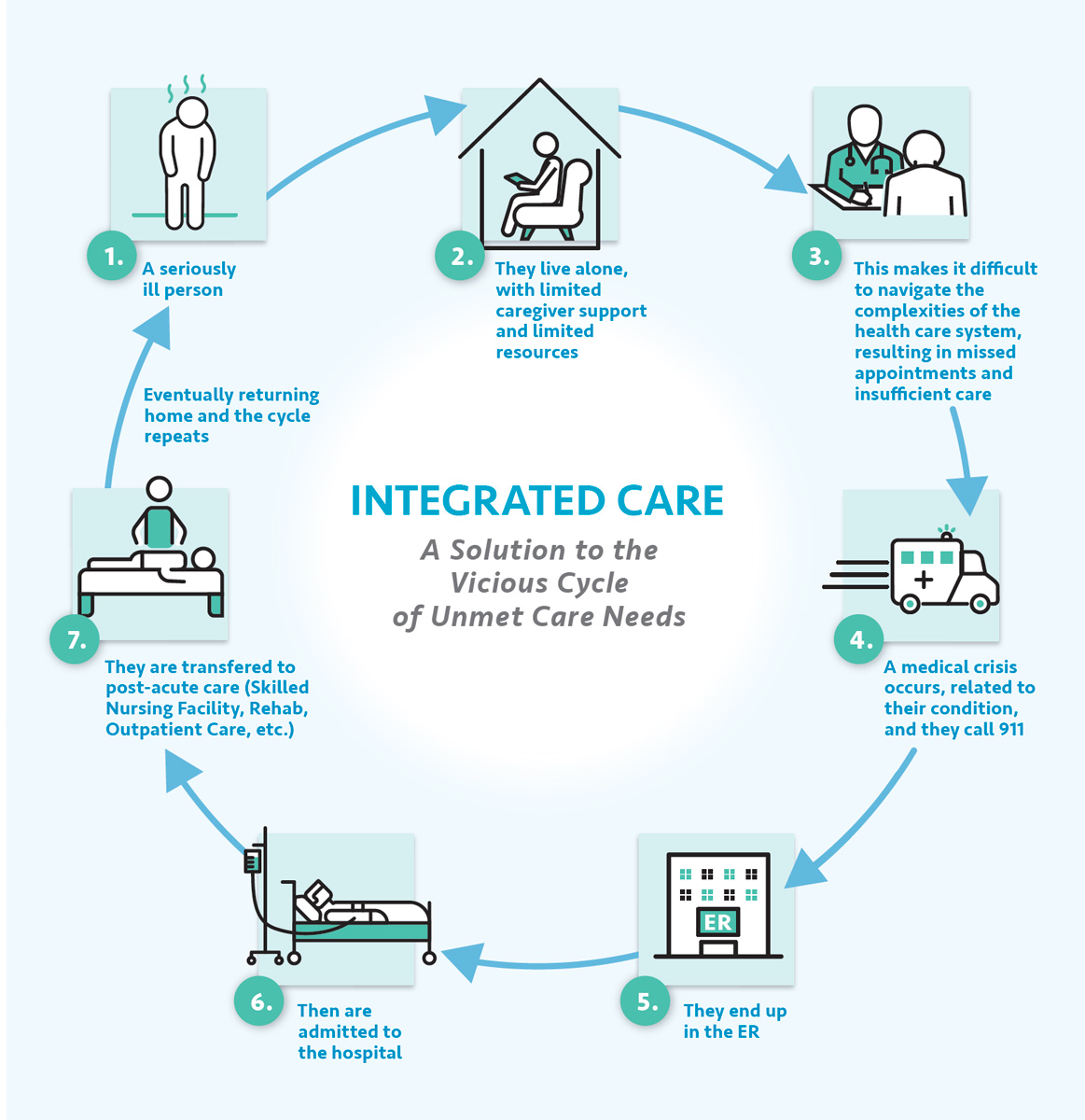Integrated Care Program
Navian Hawaii’s Integrated Care Program helps patients with serious illnesses to navigate the complex health care system, providing specialized planning, resources and education. Our Integrated Care team is separate from our Hospice Care team, and works with those who are still seeking curative treatment. Integrated Care adds an extra layer of support and helps put patients on a better path to recovery.
Working to alleviate the pain and the physical and emotional challenges patients face when living with a serious but treatable medical condition, Navian Hawaii’s Integrated Care team is comprised of a Physician Nurse, Nurse Practitioner and Social Worker. They provide disease process education, emotional support, advanced health care planning, and a variety of additional services to support patients who don’t know where to turn for help.
Integrated Care Program Goals
- Increase quality of life
- Decrease symptoms and stress related to illness
- Decrease feelings of burn out for caregiver
- Decrease need for emergency medical treatment


Integrated Care Cycle
More than just another medical service, Integrated Care offers a timely solution to some that may experience the vicious cycle of unmet care needs. For many seriously ill patients, the challenge of living alone without knowing the proper resources and caregiver support makes it difficult for them to navigate the complexities of the healthcare system, which can result in missed doctors’ appointments and insufficient care.
When a medical crisis related to their condition occurs, patients are forced to call 911, enter the ER, be admitted to the hospital, and eventually move to a post-acute care facility—all of which costs money. When they finally do return home, the cycle may inevitably continue.
The purpose of Integrated Care is to stop this cycle before it starts. Complete with a team of a Physician, Nurse, Nurse Practitioner and Social Worker, our Integrated Care Program alleviates the pain and challenges patients face when living with a serious condition and can end the vicious cycle of unmet care needs that often leads to emergency room visits, hospitalization and rehabilitation.
